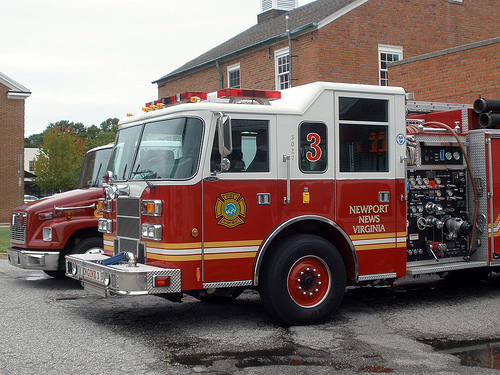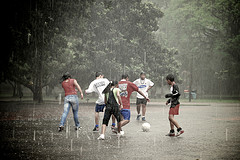Phones, tablets, and laptops are wonderful tools to stay connected and informed, but we need to be careful not to let them become distractions from real life interactions and most importantly our responsibilities.
Au Pairs – Imagine for a moment that you went to the hospital and you were in the care of doctors and nurses. How would you feel if those doctors and nurses who were there to care for you were more interested in texting or using their personal computer than caring for you? How would that make you feel, about yourself and about them? Would you think that you were getting the treatment you deserved? Would you feel like paying the bill after your stay?
Life as an au pair, it is a fine balance between employee and family member. You live with your host family and participate with them as a member of the family, but you also have clear responsibilities as a childcare provider. Being a childcare provider is truly one of the most important jobs I can think of, because you are helping to shape our next generation. What message are you sending them when you would rather interact with a computer than with them? How will they feel about themselves and about you? Children feel as though everything is about them. They will see this as a rejection of them and they will be more likely to act out.
It also poses a safety concern when you are not paying enough attention to the children in your care. Accidents happen, but when an adult care giver is close by and appropriately supervising the chances of a major injury dramatically reduce.
During work hours, the following would not be considered acceptable:
-Texting
-Talking to friends on the phone
-Chatting with friends online
-Using Skype or FaceTime
-IMing
-Emailing
-Updating your status on Facebook
-Using Snapchat, WhatsApp or any other app or social media site
-Watching videos on YouTube
-Tweeting on Twitter
-Uploading photos on Instagram
-Anything else on the computer unless it is going to Nickjr.com together with your host children
Think about this — even if you work 45 hours a week, that leaves you 123 hours per week for all of that other stuff, or about 70 hours (if you are getting the recommended 7-8 hours of sleep per night.)
Host Parents – You need to be clear about what you consider acceptable during work hours to avoid misunderstandings. Also, please understand that you are dealing with a new generation of people who are very accustomed to being plugged in at all times. Their intention is not to be rude, they don’t necessarily realize how their actions will be perceived. Please use this information as an opportunity to begin a dialogue on the issue.
 Swords, knives, and other costume accessories should be short, soft, and flexible.
Swords, knives, and other costume accessories should be short, soft, and flexible. Avoid trick-or-treating alone. Walk in groups or with a trusted adult.
Avoid trick-or-treating alone. Walk in groups or with a trusted adult. Fasten reflective tape to costumes and bags to help drivers see you.
Fasten reflective tape to costumes and bags to help drivers see you. Examine all treats for choking hazards and tampering before eating them. Limit the amount of treats you eat.
Examine all treats for choking hazards and tampering before eating them. Limit the amount of treats you eat. Hold a flashlight while trick-or-treating to help you see and others see you. WALK and don’t run from house to house.
Hold a flashlight while trick-or-treating to help you see and others see you. WALK and don’t run from house to house. Always test make-up in a small area first. Remove it before bedtime to prevent possible skin and eye irritation.
Always test make-up in a small area first. Remove it before bedtime to prevent possible skin and eye irritation. Look both ways before crossing the street. Use crosswalks wherever possible.
Look both ways before crossing the street. Use crosswalks wherever possible. Lower your risk for serious eye injury by not wearing decorative contact lenses.
Lower your risk for serious eye injury by not wearing decorative contact lenses. Only walk on sidewalks whenever possible, or on the far edge of the road facing traffic to stay safe.
Only walk on sidewalks whenever possible, or on the far edge of the road facing traffic to stay safe. Wear well-fitting masks, costumes, and shoes to avoid blocked vision, trips, and falls.
Wear well-fitting masks, costumes, and shoes to avoid blocked vision, trips, and falls. Eat only factory-wrapped treats. Avoid eating homemade treats made by strangers.
Eat only factory-wrapped treats. Avoid eating homemade treats made by strangers. Enter homes only if you’re with a trusted adult. Only visit well-lit houses. Never accept rides from strangers.
Enter homes only if you’re with a trusted adult. Only visit well-lit houses. Never accept rides from strangers. Never walk near lit candles or luminaries. Be sure to wear flame-resistant costumes.
Never walk near lit candles or luminaries. Be sure to wear flame-resistant costumes.

 With our Annual Pumpkin Patch Cluster Meeting coming up this weekend, I thought it might be helpful to show how to carve a pumpkin for au pairs who will be attempting this for the first time. Here is a video explaining how to carve a pumpkin (as well as some non-carving alternatives.) If you get a pumpkin at our pumpkin patch cluster meeting, I don’t recommend carving it until the week before Halloween, so it will stay looking fresh for big day.
With our Annual Pumpkin Patch Cluster Meeting coming up this weekend, I thought it might be helpful to show how to carve a pumpkin for au pairs who will be attempting this for the first time. Here is a video explaining how to carve a pumpkin (as well as some non-carving alternatives.) If you get a pumpkin at our pumpkin patch cluster meeting, I don’t recommend carving it until the week before Halloween, so it will stay looking fresh for big day.

